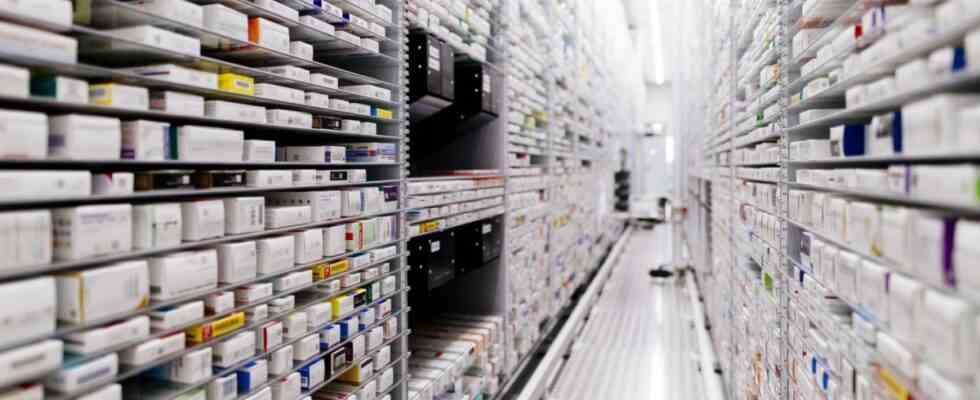Those who suffer from it are “once again the smallest in our health care system – the patients who cannot yet swallow pills,” said the chairman of the Bavarian paediatricians (BVKJ), Dominik Ewald, a few weeks ago. His association had sounded the alarm for fever juice, specifically: delivery bottlenecks for fever and pain juices with ibuprofen and paracetamol. “Now the relocation of production of so-called unprofitable, but important for certain patient groups drug specifications, to non-European countries is taking revenge,” said Ewald: “And now the suppositories are also running out.”
Small children in particular are given juices or suppositories instead of tablets. Drugs from Chinese production were stuck in the ports because of the lockdown there, and one manufacturer also left the market: too expensive, not lucrative enough. According to the BVKJ, there was also increased demand – due to the corona wave or outbreaks of scarlet fever. The replenishment of juices, according to the pharmacy industry, “is slow or very irregular”.
Bottlenecks in the supply of medicines are a concern for many citizens – there are always reports of at least temporary shortages: antibiotics and painkillers, antihypertensives, thyroid hormones, even certain cancer medicines. The Bavarian government factions CSU and Free Voters are now campaigning for more pharmaceutical research and production in this country. “Germany was once the world’s pharmacy,” said the state government’s care officer, Peter Bauer (FW), “we come from that state.” He is “not a nostalgic, but we have to be the driving force again”.
The production of important medicines should not take place exclusively in third countries, demanded Bernhard Seidenath (CSU) on Monday when presenting a package of applications that the parliamentary groups want to introduce after the summer break in the state parliament. “We have to bring production back into Europe.” For example, antibiotics are only produced at one location in Europe within Europe – everything else comes from China and India.
According to one of the applications, the state government should therefore specifically support the federal government for investment promotion – in research and development as well as for production plants; increased funding via the European Union is also part of it. When asked, Seidenath conceded that the state parliament’s design options in this area were limited. As a state health politician, however, you have the task of taking up the concerns of the population and transporting them via the Federal Council, for example.
“Greed is cool” is the wrong motto when it comes to security of supply
One of the other motions stipulates that the statutory health insurance companies should take domestic production into account when concluding discount agreements. It is the wish of the CSU and FW that cash registers have to close the contracts with at least three manufacturers in the future; European manufacturers should get the bonus, even if it costs more money. The fact is, said Peter Bauer, that the current discount system is “leading to an ever-increasing narrowing of the market due to cost pressure”. “Greed is cool” is the wrong motto when it comes to security of supply. Seidenath said they didn’t want “an end to globalization in the pharmaceuticals sector, but a relativization”. Both politicians criticized the federal government. His draft for a law to relieve health insurance companies is leaving the research-based pharmaceutical companies out in the rain.
Beate Merk (CSU) recalled a bottleneck in early 2022 with tamoxifen. It is important for the care of patients with hormone-related breast cancer and was not available at times. “So doctors had to switch to drugs that cause more side effects. Many of those affected have therefore abruptly stopped the years of treatment,” says Merk. Under no circumstances should this happen again. At the time, the Bavarian Association of Pharmacists commented on the situation in a similar way: “Those affected are afraid, and that is more than understandable.”
The example of tamoxifen illustrates “the general problem of supply bottlenecks”, the many reasons also include factory accidents or contamination: “For cost reasons, the production of the active ingredients was largely relocated to the Far East. One solution would be to produce important active ingredients within the EU again . And under high environmental protection and social standards”. For this, it was said, one had to set periods of several years.

